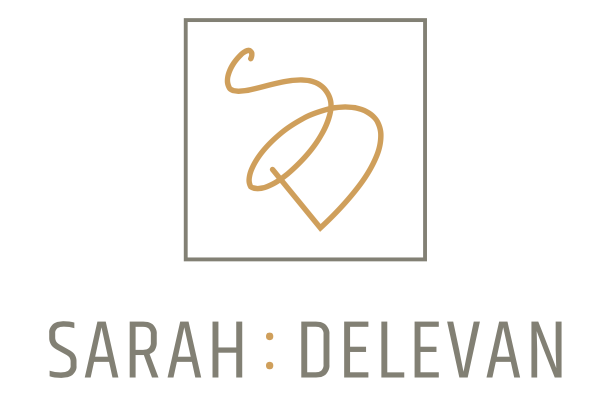3 Step Financial Decision Making Process
ARE YOU CONSIDERING A BIG FINANCIAL DECISION FOR YOUR FOOD BUSINESS?
WANT SOME ADVICE ON HOW TO MAKE THAT DECISION CONFIDENTLY?
I often get asked my opinion on big financial decisions that food business owners are making - "is it a good idea?" "is it a bad idea?", "what would you recommend?". My response is usually to walk them through this 3-step process.
Every business is unique, and business situations and decision is unique.
But there is a universal process that all business owners can use to help make financial decisions confidently.
If your goal is to create a sustainable business that minimizes risk and grows profitability, and you’re considering a big purchase, a long-term investment/expense, taking on debt or opening a line of credit, this checklist is designed just for you!
#1 REMEMBER YOUR BUSINESS OBJECTIVES
WHAT DID YOU SET OUT TO ACHIEVE THIS YEAR THAT WILL MOVE YOU CLOSER TO YOUR BIG BUSINESS GOALS?
Business Objectives are measurable targets that define progress toward your annual goals, and in turn move you closer to achieving your big business vision.
Creating a clear vision for your business, setting clear goals, and identifying 3 measurable objectives that will help you reach those goals is essential work for good food business owners. This work enables you to focus your attention, energy and money on the actions, activities and investments that will help you achieve your goals, and the ones that won’t.
Don't have a clear vision, goals or objectives for your business? Check out this post.
3 STEPS TO SETTING + REACHING YOUR BUSINESS OBJECTIVES
#2 DETERMINE IF THE INVESTMENT WILL MOVE YOU CLOSER TO YOUR BUSINESS OBJECTIVES
ASK YOURSELF: WILL THIS PURCHASE, INVESTMENT OR DEBT MOVE ME CLOSER TO ACHIEVING MY FOOD BUSINESS OBJECTIVES?
When answering this question it is important that you are honest with yourself, and that you do the work to identify the real problems that must be solved, rather than symptoms of problems.
Here's an example: Your business objective is to improve profitability. To do this you must get to the ROOT of why the symptom of low profitability exists in your business. Are your sales too low? Are your costs too high?
If you identify the cause to be low sales numbers, ask yourself (and your team) why. Is it Lack of repeat business? Lack of audience? Incorrect messaging?
Investing in hiring a sales person, or ramping up social media ad spend + marketing for a product with the wrong messaging or the wrong audience won’t get you the results you desire.
When you identify the real problem(s) in your business you can ensure that you are investing in real solutions.
IF you’ve determined that the investment will help to solve a true problem in your business and move you toward your business objectives, move on to the last step in the process.
#3 CONSIDER THE 2ND ORDER CONSEQUENCES OF YOUR DECISION
WE CAN CONTROL THE DECISION THAT WE MAKE, BUT WE CAN’T CONTROL THE OUTCOME.
THIS STEP IS AN INCREDIBLY IMPORTANT EXERCISE IN CONSIDERING THE POSSIBILITY OF THINGS NOT TURNING OUT EXACTLY AS YOU PLAN.
This is the part of the financial decision making process that most business owners fail to consider (including yours truly) that results in financial loss, and regret.
When you're faced with a big financial decision ask yourself the following questions:
What is the up side?
What is the downside? (What could go wrong?)
Can I live / can my business survive with the downside?
I recommend talking through the second question with someone else, and if that someone else is outside of your business that even better. You are seeking all the potential negative outcomes and an unbiased point of view is extremely helpful. In the process, remember to consider the monthly + long-term financial impact it could have on your business, particularly if things don’t work out as planned, as well as who and what it will affect within your business + how.
Weigh the positives and negatives, determine if you can live with (and afford) the downside, then make a decision based on the information you’ve laid out.
BIG FINANCIAL DECISIONS OFTEN FEEL LIKE THEY NEED TO BE MADE QUICKLY.
I PROMISE YOU THAT THINKING THROUGH THIS FINANCIAL DECISION CHECKLIST AND TAKING YOUR TIME IN THE DECISION MAKING PROCESS WILL PRODUCE A BETTER LONG-TERM RESULT.
The less your emotions and time play into your decision, the better.
Having a Profit Plan or Financial Projections is also helpful in this process and allows you to run various financial scenarios so you can actually see all the possible outcomes.
Visit our website to learn more.
AND OF COURSE, THE FREE PROFITABLE FOOD BUSINESS COMMUNITY IS ALWAYS OPEN!
About the Author: Sarah Delevan is a Food Business Financial Coach and Consultant with over 7 years of working in the food industry. She received her MBA from Rollins College and In 2017 she founded Sarah Delevan Consulting based in Los Angeles, CA and serving clients across the United States. She is the creator of the Financial Success Formula and the founder of the Profitable Food Business program as well as the host of The Good Food CFO Podcast. To learn more about Sarah and opportunities to grow a more profitable food business Click Here.

